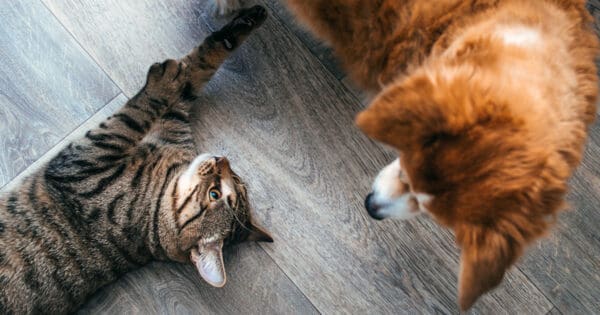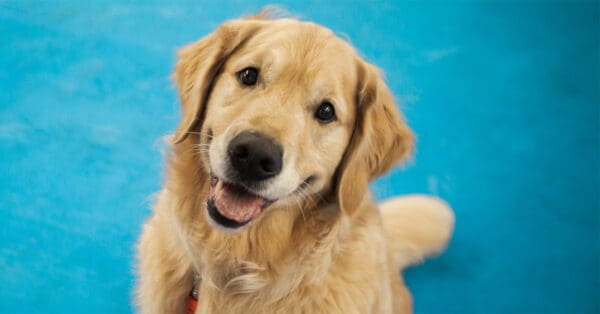
11401 NE 195th St. Bothell, WA 98011
(425) 486-9000 PHONE (425) 486-9002 fax
Notice: Below care sheet is from 2016, and may not reflect up-to-date care information.
Average Lifespan
The average lifespan for birds varies widely depending on the species. Budgies may live 8-10 years and macaws can live up to 80+.
Diet
A nutritionally balanced diet is absolutely essential to your parrot’s health and well-being. Please refer to the CBEAM “Avian Nutrition” handout for detailed information about providing your bird with a healthy diet.
Housing
Parrots need lots of space in order to be happy. Buy the largest cage that you can afford for your feathered friend. At a minimum, your parrot should be able to fully stretch out his wings in any direction without brushing up against a wall of his/her cage. Horizontal floor space is more important than vertical space for parrots. Cage bar spacing should be appropriate for your parrot’s species. As some metals are toxic to parrots, it is essential to purchase a cage that is either:
- powder coated
- stainless steel
Cage flooring may be composed of either a grate or solid surface; both options are acceptable. The bottom of the cage should be covered with newspaper, paper towels, commercially made cage liners, or recycled paper products. Do not use wood shavings, corncob bedding, or walnut husks for this purpose. These products are not safe for a variety of reasons. The cage should be cleaned thoroughly at least every other day. Cleanliness is essential, and goes a long way towards preventing disease in parrots.
Your parrot should have access to a wide variety of natural wood branch perches of various diameters appropriate to his/her foot size. Dowel rod perches should not be used, as birds that spend a lot of time on these perches tend to develop pressure sores on their feet. If a concrete “grooming perch” is provided, the perch should not be placed in an area where your bird typically stays. Rope perches are soft and comfortable for parrots to stand on. However, if they are used, they must be checked regularly for loose threads. Some parrots will ingest these rope threads, or get them caught around their toes, causing serious injury.
As most species of parrots originate from warm climates, parrots prefer temperatures in the upper 70’s to low 80’s. If your house stays at a cooler temperature, we strongly recommend purchasing a ceramic heat lamp to keep at least one side of the cage at this temperature. Ultraviolet light requirements for parrots are still poorly understood, but UV light has been shown to be good for them. We strongly recommend allowing birds supervised time out in natural sunlight (either in a cage or on a harness/leash) whenever possible for optimum health. Alternatively, you can provide supplemental UV light for several hours each day using a 5.0 UVB light next to the cage.
In general, we do not recommend providing pet parrots with a “nest” area. This can stimulate unwanted reproductive behaviors in some parrots. Mirrors within the cage can have similar negative side effects, and are also discouraged.
Water can be provided in either a bowl or a water bottle. Both of these options have advantages and disadvantages. Birds with water bowls tend to dunk their food, and can get the water dirty very quickly. Water bottles may be more hygienic, but only if your bird learns how to drink from them. If you choose to use a water bottle for your bird, you must confirm that the spout is working appropriately every day.
Water bowls or water bottles should always be cleaned thoroughly with hot soapy water once or twice daily. Food dishes should be cleaned every day. Both food and water bowels should be run through your dishwasher at least twice weekly to prevent buildup of bacterial residues.
Toys
Parrots usually enjoy a wide variety of toys. Some examples of commonly used toys include:
- shredders (toy is made for your parrot to destroy)
- foot toys (toy is made for your parrot to play with using his/her feet)
- boings and swings (toys that move in response to your parrot’s movement)
- noise makers (toy makes noise when it is manipulated by your parrot)
- foraging toys (toy hides food that your parrot has to figure out how to remove)
Materials that are safe for use in parrot toys include wood, leather, paper, and most plastic products. If toys contain bells or other metal items, it is vital to confirm that the metal is either stainless steel or nickel plated. Zinc and lead are commonly used in the construction of many bird toys, and are potentially deadly toxins that should be avoided at all costs. If the toy does not specify the type of metal used in its construction, do not let your parrot play with it, or ask your veterinarian how it can be tested for toxins.
Social needs
All parrots are exceedingly social creatures. Most wild parrots form large flocks that interact with each other all day long, searching for food and seeking companionship. In captivity, parrots will seek this level of companionship with either their human owners or with another bird (if available). Parrots that do not receive adequate levels of social stimulation are at risk for developing a wide range of behavioral problems.
Rest needs
Parrots should have at least 10-12 hours of sleep every night for optimal health. When your bird goes to bed, he/she should be placed in a quiet, dark room with minimal distractions. If your bird has a room in the house dedicated to him/her, this is easy to do. If your bird’s primary cage is in a high traffic area of the house, providing a designated “sleep cage” that can be located in a quiet area of the house may help your bird get appropriate rest.
Grooming
Parrots should be allowed to “shower” with water at least 2-3 times per week for optimal feather health. Parrots typically need toenail trims every few weeks to keep them short and blunt.
Wing trims are optional. The goal of performing a wing trim is to prevent your bird from being able to fly around the room, but allow your bird the ability to make a controlled glide to the ground if startled into flight. Wing trims are not painful, and they are not permanent. Depending on how often your bird molts, wing trims usually need to be performed every 3-6 months.
Healthy birds rarely, if ever, need their beaks trimmed.
Schedule of Veterinary Care
- Annual or bi-annual physical exam
- Nail trims and/or wing trims as needed
Please refer to our website (www.theexoticvet.com) for additional care sheets
and information regarding parrot health and behavior.
March 30, 2015
Content of this Care Sheet Courtesy of:
The Center for Bird and Exotic Animal Medicine
11401 NE 195th St. Bothell, WA 98011
(425) 486-9000 PHONE (425) 486-9002 fax



